Australia
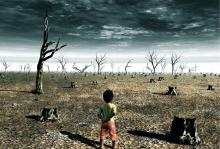
Christians often want to be good Samaritans in dealing with the symptoms of sinful systems. So we lobby for asylum seekers to be allowed into the country and we advocate for tackling climate change. The two are not unrelated — climate change can be a driver of significant migration. Consider the Carteret Islanders, who are now abandoning their homes as the rising seas swallow their islands, and seeking a new life on Papua New Guinea. And some researchers have even suggested that climate change was a factor in the Syrian crisis, as a six-year drought drove up food prices and forced people into poverty.

No food. No water. No sanitation. No safe place to go. No future.
This is the reality for the refugees in detention on Manus Island off the coast of Australia, where a U.N. human rights committee says international law is being violated.
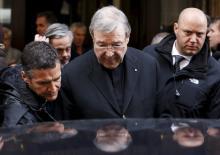
One of the most senior officials in the Vatican took a leave of absence and pledged to defend his name after being charged with multiple historical sex crimes in Australia.
Cardinal George Pell, one of Pope Francis’ most trusted advisors and head of the Holy See’s finance department, is the highest ranking official in the Catholic Church to face abuse charges.
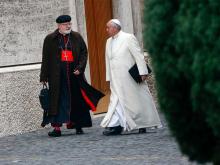
Collins, who was sexually abused by a priest at age 13, resigned on March 1, citing what she called “shameful” resistance to commission proposals from the Vatican’s powerful doctrinal office, which is responsible for pursuing cases against abusive priests and bishops.
Saunders stepped aside after publicly calling for Australian Cardinal George Pell to be dismissed, after news reports surfaced that he had protected pedophile priests in Australia. Pell serves as the Vatican’s finance chief.
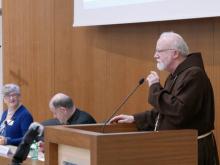
“There is simply no justification in our day for failures to enact concrete safeguarding standards for our children, young men and women, and vulnerable adults,” O’Malley said.
“We are called to reform and renew all the institutions of our church. … And we certainly must address the evil of sexual abuse by priests.”
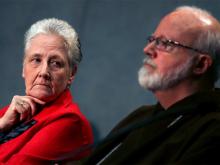
In a major setback for the pope, Collins on Mar. 1 announced that she had resigned from the Pontifical Commission for the Protection of Minors, established by the pontiff in 2013 to counter abuse in the church.
She said the pope’s decision to create the commission was a “sincere move,” but there had been “constant setbacks” from officials within the Vatican.
“There are people in the Vatican who do not want to change, or understand the need to change,” Collins said in a telephone interview from Dublin.

Pope Francis has condemned clerical sex abuse as an “absolute monstrosity,” and asked victims and their families for forgiveness on behalf of the Catholic Church.
In an unusual move, the pontiff’s comments were published as a preface to a new book by Daniel Pittet, a Swiss victim who was sexually abused for four years by a priest when he was a child.
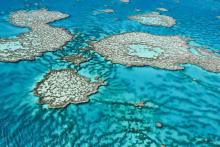
Outside Magazine’s obituary went viral online, but drew criticism from scientists who considered it irresponsible to deem the Great Barrier Reef dead. Terry Hughes, the director of the ARC Center of Excellence for Coral Reef Studies, told the Huffington Post that it’s still possible to “save the Great Barrier Reef.”
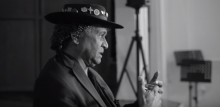
Pastor Ray says that the Good Samaritan story leads Christians to ask, Where is the church in the healing of these wounds?
“The healing of our wounds becomes the healing of your wounds as well,” he says.
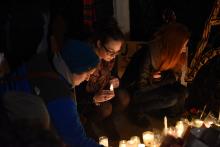
With Australia’s Harmony Day falling during Holy Week this year, this is a timely opportunity to meditate upon Jesus’ call to love thy neighbor and ask, “What is the connection between loving God and neighbor?” And, “Can you have one without the other?”
On this first day of our campaign, Louisa Hope — taken hostage and shot in Sydney’s Lindt Café siege, that made international news just over one year ago — tells her story. It’s a challenging testimony of how Jesus’ love, seen in his death on the cross, can overflow into love of others.

Australian Cardinal George Pell, now a top adviser to Pope Francis, testified in a landmark clergy sex abuse inquiry that the Catholic Church made “enormous mistakes” in trying to deal with the scandal. Speaking to an Australian commission investigating the church’s response to abuse, Pell — who had previously been archbishop in Sydney — also said that during the 1970s he was “very strongly inclined to accept the denial” of a priest accused of abuse.
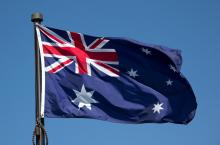
THE LAST GUN-MURDER massacre in Australia happened in April 1996.
I remember it clearly. My wife and I were preparing to move from our home in Sydney to California, where I’d been accepted to study at Fuller Theological Seminary. After 13 years of a Labor government in Australia, Conservative John Howard had just been elected prime minister. My wife and I joked that it was a good time to leave the country. Then the Port Arthur massacre occurred—35 people were killed, 23 were wounded.
What happened next was astounding. The senior leaders of both major political parties, at both the federal and state levels, faced down opponents and enacted far-reaching and effective new gun laws.
What came to be called the National Firearms Agreement banned the importation, sale, and possession of all automatic and semi-automatic rifles and shotguns (most handguns were already illegal) and enacted a compulsory gun buy-back scheme.
The new agreement for gun ownership allowed guns to the military, police, and those employed to shoot feral animals. The new federal laws were enacted unilaterally across state rights. Controversially in light of Second Amendment rights in the U.S., the act specifically stated “that personal protection not be regarded as a genuine reason for owning, possessing, or using a firearm.” However, genuine reasons included “sporting shooters” with valid club memberships, hunters with proof of permission, and “bona fide collectors of lawful firearms.”
The new gun laws were passed quickly, accompanied by an amnesty for any unlicensed firearms.
As we packed our bags to move to the United States, images filled the nightly television news of police stations across Australia full of firearms of varying shapes, sizes, and states of legality. These were guns that were voluntarily surrendered, in addition to those gathered through the formal buy-back program.It was more than politics. It was a national moment.

“Death has taken its toll. / Some pain knows no release / but the knowledge / of brave compassion / shines like a pool of peace.”
These words are engraved on the memorial pond at the Port Arthur mass shooting site in Australia. Nearby, a wooden cross is inscribed with the names of the 35 men, women, and children who died here. In contrast, a brochure at hand provides a simple explanation of what occurred in this place; it notably does not name the gunman. 1996: Australia’s last mass gun death.

More than 55,000 people have signed a petition calling for Cardinal George Pell to return to his native Australia and face a government commission on child sex abuse, after allegations that he tried to bribe the victim of a pedophile priest.
Addressed to Pope Francis, the Change.org petition calls for Pell — the Vatican’s financial chief and former archbishop of Sydney — to answer questions from Australia’s Royal Commission into Institutional Responses to Child Sexual Abuse.
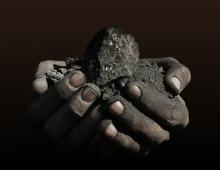
I HAVE SOMETIMES been dismayed by the lack of speed that some churches and denominations have shown when it came to tackling environmental issues. On the question of divestment from fossil fuels, for instance, the Unitarians have been forthrightly in favor, and the United Church of Christ as well (and the Rockefellers!). But the Methodists, Lutherans, Presbyterians, and Anglicans are, by and large, dragging their feet as usual.
Sometimes I confess to imagining that God herself might be getting a bit impatient, too—how else to explain the name of the site for the next great fossil-fuel battle?
It will happen in Australia’s Galilee Valley, a remote basin many hours from the continent’s cities. At the moment it’s basically untouched, but plans call for it to become The Biggest Coal Mine on Earth. There is enough coal beneath its soil to provide 6 percent of the carbon that would take us past the two-degree rise in temperature scientists have given as the ultimate red line. That is to say, one valley in one nation (a nation with one-third of 1 percent of the planet’s population) can do 6 percent of the job of wrecking the planet. One valley!

“If you don’t feel safe alone, I will ride with you.”
These words have so much depth.
When an armed man with unidentified ties to radical Islam took control of a Sydney café for over 16 hours on Monday, a social media campaign under the hashtag #IllRideWithYou started rapidly trending on Twitter. Australians started the hashtag to stand in solidarity with Muslims during the immediate tension following the siege. In a matter of hours, the hashtag became an international movement creating over 480,000 tweets.
The hashtag was inspired when one user tweeted the story of a young Muslim woman who removed her hijab (traditional Islamic head scarf) while riding public transportation because she feared that identifying herself as a Muslim would put her in danger of misdirected violence toward innocent Muslim citizens in the aftermath of another extremist fueled act. The tweet continued to describe another young woman who “ran after her at the train station [and said] ‘put it back on. I’ll walk with u [sic]..’”
This original tweet inspired Tessa Kum, an Australian TV content editor, to reply with a message that sparked a movement. From her handle @sirtessa, Kum tweeted,
“If you reg take #373 bus b/w Cogee/Martin Pl, wear religious attire, & don't feel safe alone: I'll ride with you. @ me for schedule.”

The Roman Catholic Church in Australia acknowledged that “obligatory celibacy” may have contributed to decades of clerical sexual abuse of children in what may be the first such admission by church officials around the world.
A church advisory group called the Truth, Justice and Healing Council made the startling admission Dec. 12 in a report to the government’s Royal Commission, which is examining thousands of cases of abuse in Australia.
The 44-page report by the council attacked church culture and the impact of what it called “obedience and closed environments” in some religious orders and institutions.
“Church institutions and their leaders, over many decades, seemed to turn a blind eye, either instinctively or deliberately, to the abuse happening within their diocese or religious order, protecting the institution rather than caring for the child,” the report said.

Editor's Note: Jarrod McKenna is an Australian Christian leader behind #LoveMakesAWay, a movement of Christians seeking an end to Australia's inhumane asylum seeker policies through prayer and nonviolent love in action. Read more about McKenna, #LoveMakesAWay, and the indefinite imprisonment of immigrants in Australia HERE. This article originally appeared at Junkee.
If you care about the cause of asylum seekers in Australia, you know there’s not been much to cheer about lately – the government descends further into cruelty, while much of the populace just shrugs.
So when a group of priests and pastors were arrested for peacefully occupying the Sydney offices of immigration minister Scott Morrison in March, praying and demanding the release of kids in detention, it turned a few heads and went a bit viral. When it happened again and again in the following months, it felt like a movement. To date, more than 100 leaders from many different faiths have been arrested at Love Makes A Way prayer vigils in politician’s offices all over the country (the PM wasn’t spared; his digs were targeted in May).
The charmingly polite stubbornness with which they’ve taken the government to task has earned many supporters of all persuasions, even if the prayer bit is lost on some of them. Along with other “cranky Christian” activists like Gosford Anglican Church’s Father Rod Bower (he of the irrepressible message board) and rogue Catholic priest and Triple J presenter Father Bob, they’ve been a pain in the conservative arse even an atheist could love.
One of the main minds behind Love Makes A Way is Perth-based radical Christian leader Jarrod McKenna. With his blond dreadlocks, casual vibe, and jokes about how Christians are “daggy,” he’s hardly the sanctimonious, Bible-bashing type. But when the subject of human rights and nonviolent resistance comes up, the charismatic McKenna becomes passionate, even evangelical.
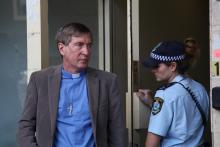
On Monday a nun was arrested here in Australia. That’s right, a nun. She was one of a crowd of Christian leaders who engaged in nonviolent sit-ins at the electorate offices of Bill Shorten and Tony Abbott. This is the latest #LoveMakesAWay action protesting indefinite imprisonment of children in our immigration detention centers. When nuns are cranky at this bipartisan brutality, its fair to say something is gravely wrong.
It was a candid moment with the BBC. Malcolm Turnbull let slip what a lot of decent Australians are thinking, not just placard-waving radicals with witty twitter handles, but families with mortgages who ferry their kids to weekend sport. ‘I don't think any of us are entirely comfortable with any policies relating to border protection’ he said. Malcolm is a team player, so he’s never going to come right out and say it. But nuns will. Desperate people are coming to us seeking safety from persecution, and the way we treat them is wrong.
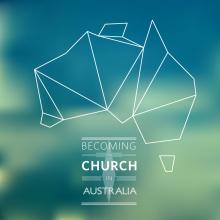
Here’s a crash course to understand what’s happening in Australia with refugees and the politics of Jesus.
Imagine for a moment that in the lead up to the next U.S. elections, a political party changed immigration policies and took the relatively small number of people seeking safety on boats from, let’s say Cuba, and locked these persecuted people up on Guantanamo like criminals — elderly, men, women, and over 1,000 children. You would expect outcry from people across the political spectrum. Indeed there was. Only the fear campaign was so effective, the blame game so seductive and the election win so decisive, that the majority of politicians on all sides sacrificed their principles on the altar of popularity. Not to mention these desperate people — tired, poor, huddled masses yearning to breathe free — … these now homeless who were literally tempest-tossed on boats sacrificed on this bloody idol of false security. Of course behind closed doors, elected officials will confess to you, as a Christian, that they personally find it abhorrent but for the sake of the party and all the good they could do when they get into power they rationalize with the logic of Caiaphas and get the same results: the sacrifice of the innocent.
Sound too far-fetched? This is the recent history of Australia. Thanks, Paul Dyson, for the Cuba analogy.